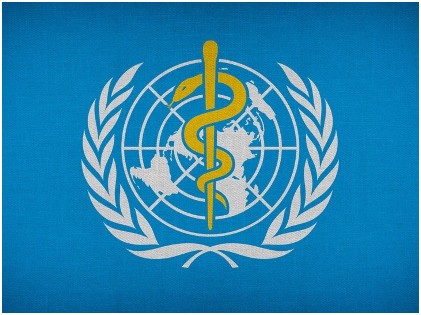194 members of the World Health Organization have agreed to adopt the decision to talk over an international treaty on pandemic prevention and preparedness at a session to take place on May 31, 2021, at the World Health Assembly. The global pandemic treaty would support efforts from various nations to reinforce health security all over the globe.
The COVID-19 pandemic has exposed various issues and loopholes. This time will focus on pandemic preparedness and how the world responds to health emergencies—this decision by WHO aims to make sure that the European Union participates in the negotiations. Get to know the details.
The Purpose of an International Treaty
 The COVID-19 pandemic has undoubtedly posed a stiff challenge for the global community. One government or a single institution can’t fight against pandemics in the future. A treaty is an instrument bounder by international law.
The COVID-19 pandemic has undoubtedly posed a stiff challenge for the global community. One government or a single institution can’t fight against pandemics in the future. A treaty is an instrument bounder by international law.
The World Health Organization has adopted an international treaty that would equip the countries across the world with the strength to wage war against future pandemics on a national, regional, and global basis.
Objectives of the International Treaty
 The main pillars of the treaty are collective solidarity, inclusiveness, transparency, and fairness. The governments alone or the international community don’t have the capacity and means to prevent the pandemics from wreaking havoc.
The main pillars of the treaty are collective solidarity, inclusiveness, transparency, and fairness. The governments alone or the international community don’t have the capacity and means to prevent the pandemics from wreaking havoc.
However, the global community must be fully prepared and in alignment when it responds to future pandemics. Detecting the pandemic, alarming the global community, and responding to the pandemic all have to be up to the mark.
The treaty would lay down the goals and the fundamental principles to build up a proper structure of the collective action that is of utmost necessity during the onslaught of a pandemic. The treaty would focus on early detection and prevention, and resilience to the pandemics in the times to come.
It would also focus on making sure that the international community has access to diagnostics, medicines, and vaccines, building a stronger health framework across the globe that will be coordinated by the World Health Organization. Aside from that, it will be kind of a one-health approach. This treaty has the potential to strengthen countries in areas like surveillance, alarms, and response.
Incentives and Benefits
 Better surveillance during future pandemics is the biggest positive expected to come out of it. Detecting the risks and sharing every bit of knowledge gathered on infectious diseases that might transmit from animals to humans is essential to prevent future pandemics.
Better surveillance during future pandemics is the biggest positive expected to come out of it. Detecting the risks and sharing every bit of knowledge gathered on infectious diseases that might transmit from animals to humans is essential to prevent future pandemics.
It is important to monitor animal diseases through surveillance and laboratory tests. Research centers need to collaborate more with each other. International funding has to be well-coordinated as well. If the alert levels increase, communicating health threats can be accurate.
It is possible to collect data with the help of digital technologies and various innovative tools. There must be a prompt response to any early warning. The treaty will help in a better response to future pandemics. If countries can coordinate the stockpiling of the essentials like equipment, medicines, etc., the pandemic response might be more effective.
The deployment of medical teams and medical equipment on the ground would improve health security throughout. If the approach to future pandemics is globally effective, the benefit will be collective health security. If access to diagnostics, medicines, and vaccines lacks fairness, human life will be under serious threat from future pandemics.
Procedure
The international treaty on fighting pandemics in the times to come would take the shape of a universal instrument that the World Health Organization can turn into a framework convention. Under Article 19, there exists a special provision that gives the World Health Assembly to negotiate and concur on agreements and conventions. And this applies even in the case of matters that lie within the capacity of the World Health Organization. This Article came into effect and became the framework convention on tobacco control in the year 2003.
The announcement of a proposal to introduce an international treaty on pandemics was done by Charles Michel. Charles Michel is the president of the European Council at the Paris Peace Forum in the year 2020. It is now to see how things shape up toward the end of 2021. We can only hope that the emergency readiness and all the lessons from the COVID-19 pandemic will save the world from a future pandemic.





